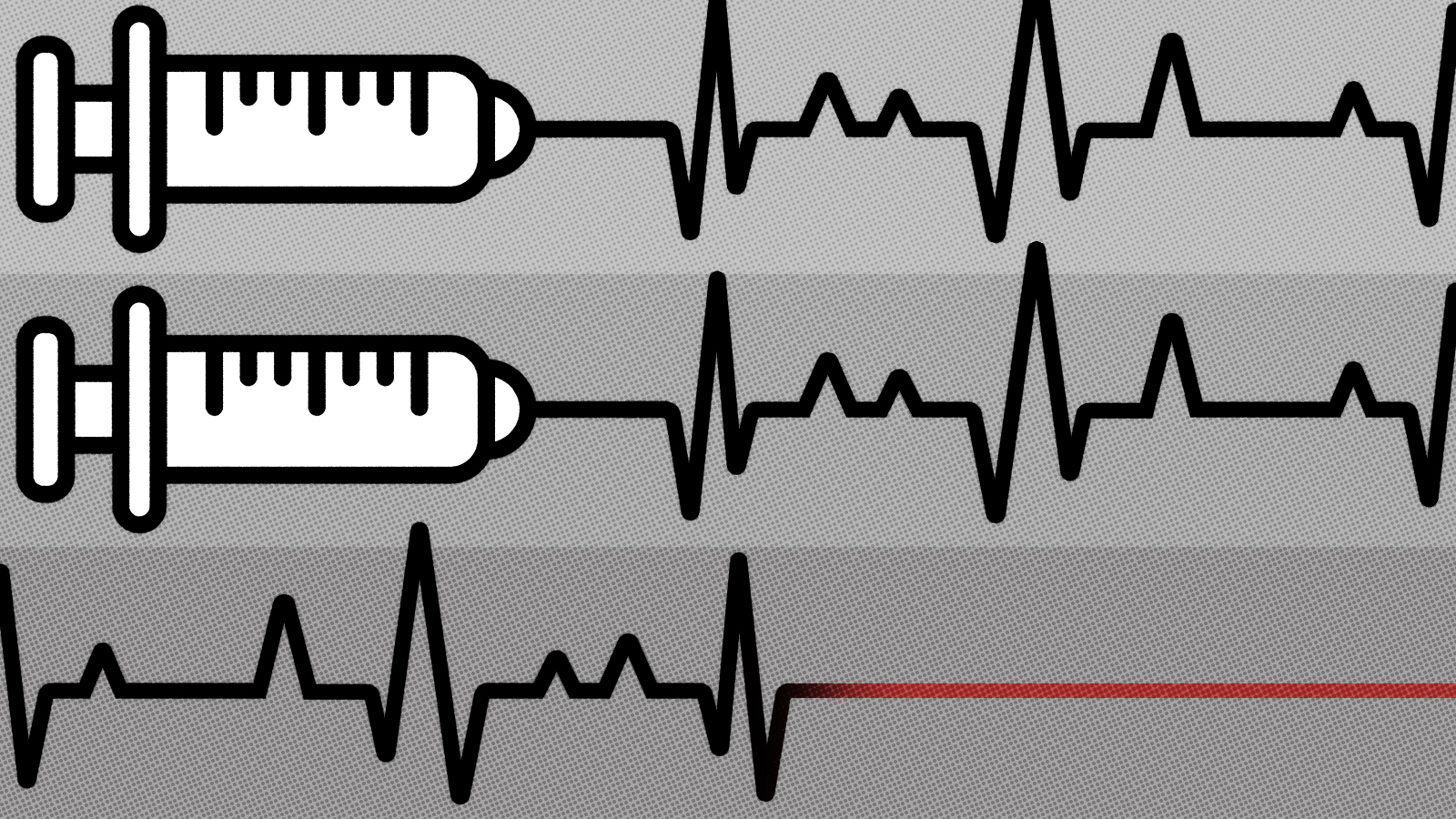HSAs, explained
Everything you need to know about the health savings account that experts love

A free daily email with the biggest news stories of the day – and the best features from TheWeek.com
You are now subscribed
Your newsletter sign-up was successful
Many workplaces are in the thick of benefits enrollment, that annual time of headaches and hand-wringing when we pick medical plans, remind ourselves what deductibles are, and weigh the possibilities that the worst will happen against our hopes for the best. But as important as benefit choices are, it's tempting to gloss over the ones we don't understand. If you count health savings accounts among those mysteries, however, think twice before dismissing them. Here's what you need to know:
What is an HSA?
An HSA is a savings account that you are eligible to open upon enrollment in a high-deductible health insurance plan. The money you put into the account can be used to pay for qualified medical expenses ranging from doctor's visits and prescription co-pays to immunizations, acupuncture, and more (note: insurance premiums usually do not qualify).
The Week
Escape your echo chamber. Get the facts behind the news, plus analysis from multiple perspectives.

Sign up for The Week's Free Newsletters
From our morning news briefing to a weekly Good News Newsletter, get the best of The Week delivered directly to your inbox.
From our morning news briefing to a weekly Good News Newsletter, get the best of The Week delivered directly to your inbox.
One of the biggest advantages to an HSA is that they come with a triple tax break. Contributions are not taxed. The balance grows tax free. And withdrawals are not taxed provided they're made for qualified medical expenses. Forty-three percent of employers offer them, but if yours doesn't, you can open one on your own through a separate administrator.
What qualifies as a high-deductible health plan?
For 2017, the IRS defines high-deductible health plans as those with an annual deductible that is at least $1,300 for individual coverage or $2,600 for family coverage. In addition, annual out-of-pocket expenses (excluding premiums) cannot exceed $6,550 for individual coverage or $13,100 for family coverage.
High-deductible health plans typically come with lower premiums compared to other plans — that's the trade-off to policyholders for exposing themselves to potentially greater out-of-pocket costs; for example, you might find yourself paying full price for costly medications or tests. Because employers also save on premiums with high-deductible plans, many contribute to their employees' HSAs as an incentive.
A free daily email with the biggest news stories of the day – and the best features from TheWeek.com
Are there annual contribution limits?
Yes — for 2017, an individual may save up to $3,400 in an HSA, and a family up to $6,750. People 55 and older can supplement with another $1,000 as "catch-up." If your employer is contributing, the total annual amount still can't exceed these caps; you just wind up setting aside less.
What's the difference between an HSA and a flexible savings account (FSA)?
Any unused money that's in an HSA account at the end of your plan year rolls over into the next year — and the next, and the next. This can allow you to build up a lot of savings. There is no deadline for withdrawals; if you pay a medical bill through a source other than your HSA, you can submit for reimbursement anytime as long as you've kept the receipts.
By contrast, FSAs — which are also accounts where you can set aside money tax-free for qualified medical expenses — are run largely on a use-it-or-lose-it philosophy for the year. Some companies allow a little wiggle room, letting employees roll $500 in unused funds into the next year's FSA or tap into their FSA funds during a grace period that extends past the end of the plan year. When the deadline hits, however, unused FSA money from the year goes to your employer (though they are legally bound to use it for administering the FSA program).
In addition, all money in an HSA account belongs to you as the account owner; it travels with you from one job to another, and on into retirement. If you leave a company and have unused FSA money, however, you have limited options for tapping into it. Keep in mind that in most cases, you cannot have both an HSA and an FSA.
Who are the best candidates for HSAs ?
"The plans are an obvious good fit for healthy young people with good cash flow, and for people who make enough to want to whittle down taxable income," says Bloomberg.com. The health factor is key because if you don't have many health care expenses, the high deductible doesn't matter and the lower premium is a nice savings. You just have to consider your comfort with the risk of incurring an unexpected big medical expense.
Many experts recommend HSAs as a means to pay for current health expenses as well as save for such expenses in the future — especially in retirement when medical bills are likely to increase. "It's the most tax-preferred account available," Mitchael Kitces, director of financial planning at Pinnacle Advisory Group Inc., told The Wall Street Journal. "Using one to save for retirement medical expenses is a better strategy than using retirement accounts" to cover those expenses.
A few other things to keep in mind: Once you sign up for Medicare, you can no longer contribute to an HSA. If you use HSA money for nonmedical expenses before 65, you'll have to pay a 20 percent penalty plus taxes on the withdrawals; if you use it for nonmedical expenses after 65, you'll avoid the penalty but still have to pay taxes.
If you decide to pursue an HSA, be sure to do your research. Some have fees associated with them, and the investment options will differ from one HSA provider to the next.
Alexis Boncy is special projects editor for The Week and TheWeek.com. Previously she was the managing editor for the alumni magazine Columbia College Today. She has an M.F.A. from Columbia University's School of the Arts and a B.A. from the University of Virginia.
-
 The ‘ravenous’ demand for Cornish minerals
The ‘ravenous’ demand for Cornish mineralsUnder the Radar Growing need for critical minerals to power tech has intensified ‘appetite’ for lithium, which could be a ‘huge boon’ for local economy
-
 Why are election experts taking Trump’s midterm threats seriously?
Why are election experts taking Trump’s midterm threats seriously?IN THE SPOTLIGHT As the president muses about polling place deployments and a centralized electoral system aimed at one-party control, lawmakers are taking this administration at its word
-
 ‘Restaurateurs have become millionaires’
‘Restaurateurs have become millionaires’Instant Opinion Opinion, comment and editorials of the day
-
 Do unvaccinated COVID patients deserve scarce care? A doctor weighs in.
Do unvaccinated COVID patients deserve scarce care? A doctor weighs in.The Explainer Justice, judgment, and the last ICU bed
-
 How to vaccinate the anti-vaxxers
How to vaccinate the anti-vaxxersThe Explainer Instead of blaming people for not doing the right thing, let's focus on eliminating the obstacles to vaccination that still remain
-
 The U.S. could double its COVID-19 vaccine availability overnight. What's the holdup?
The U.S. could double its COVID-19 vaccine availability overnight. What's the holdup?The Explainer How the FDA could approve a more efficient vaccine rollout
-
 The October Surprise nobody wanted
The October Surprise nobody wantedThe Explainer Trump has COVID-19. Really, 2020?
-
 Life is worth living
Life is worth livingThe Explainer What's driving America's rising suicide rate?
-
 Social workers are masters at de-escalation. Here's what the police can learn from them.
Social workers are masters at de-escalation. Here's what the police can learn from them.The Explainer Knowing how to peacefully resolve conflict, rather than exacerbate it, can save lives
-
 Settling in for the long pandemic
Settling in for the long pandemicThe Explainer Life won't be back to "normal" anytime soon
-
 Sports reveal how much America is trailing the rest of the world
Sports reveal how much America is trailing the rest of the worldThe Explainer MLS and other American leagues are stumbling through their pandemic restart plans